Mini-implants
Many patients who need full removable dentures are concerned about the stability of the structures: will they cause discomfort when talking and eating? Even well-fitted products can slip, and denture adhesives are not suitable for everyone. Mini-implants help solve this problem.

specialists

equipment

treatment
Types of mini-implants
Orthodontic (orthoimplants)
Ortho-pins are installed on the dental arch. They are designed to create additional support when acting on the teeth. They are made of titanium and stainless steel. Such structures are placed on both the front and back teeth.
Mini-implants for braces are used as supporting elements. That is, they are used when correcting the bite with braces. Such structures provide reliable fastening of classic brace systems, and also speed up and simplify the treatment process.
Mini-implants for fixing removable dentures
Mini pins, designed for fixation, provide reliable retention of the denture in the mouth. They are also made of titanium and have the shape of small screws. They are especially relevant for people with a complete absence of teeth, since traditional dentures do not provide adequate fixation.
Placement of mini pins significantly improves patient comfort. In particular, such mini-devices help eliminate difficulties with chewing and speech that may arise when using conventional dentures.
The product is securely attached to Mini implants using special fastening mechanisms - this makes it virtually immobile.
MDI Features
One of the advantages of MDI is the ability to immediately fix the prosthesis after its placement.
Roughness on the surface of the prosthesis increases the area of contact with the bone. The conical shape of the connection with the abutment eliminates the risk of breakage or loosening of the screw. This ensures the reliability and durability of the structure.

Other features:
- Modern manufacturing technology Titanium alloy grade 5 is used for the production of MDI structures. It is biocompatible with human tissues and highly hydrophilic. These properties contribute to rapid osseointegration (bone engraftment)
- Implant design MDI is a conical rod with a self-tapping thread with a diameter of 1.8 mm. The upper part of the implant has the shape of a ball with a metal holder and an internal ring attachment. When placing the prosthesis, the holder snaps onto the abutment, providing reliable fixation on the jaw
- MDI implant fastening mechanism It creates vertical flexibility and is able to withstand high chewing loads. The lower pointed part of the structure allows you to easily screw the implant into the gingival crest. Against this background, the possibilities of prosthetics on Mini pins are significantly expanded
- Reliability After osseointegration, the load is distributed only to the upper 6 mm parts. This means that short pins and long pins can cope with chewing loads
- Immobility under load Unlike natural teeth, which are mobile due to the soft tissues of the periodontium, pins remain immobile under load.
- Contact area and diameter Implantologists most often use short dentures on Mini implants with a diameter of 4-5 mm. Correct calculation of these parameters affects the quality of the connection and the service life of the implant.
General information about implants
Answers to popular questions
Doctors K+31 in Moscow have extensive experience working with mini dental implants. They answer the most common questions.
How long do Mini implants last?
What are the advantages of Nobel Mini implants?
Nobel implants take root in 98% of cases. Their special shape allows them to be used even with a deficiency of bone tissue. In addition, they have a porous TiUnite layer. Its presence accelerates the engraftment process.
Our clinic performs dental restoration using mini implants. Our prices for removable mini dentures are average in Moscow. You can make an appointment with a doctor and find out the cost of mini implants by phone.
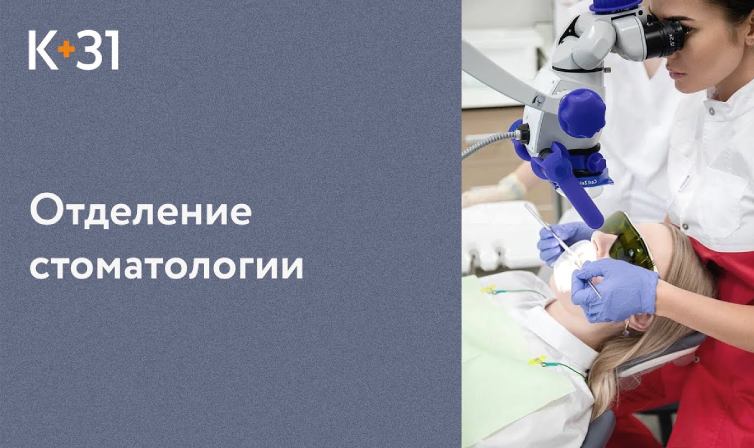
Modern methods of diagnostics and dental treatment at "K+31"

This award is given to clinics with the highest ratings according to user ratings, a large number of requests from this site, and in the absence of critical violations.

This award is given to clinics with the highest ratings according to user ratings. It means that the place is known, loved, and definitely worth visiting.

The ProDoctors portal collected 500 thousand reviews, compiled a rating of doctors based on them and awarded the best. We are proud that our doctors are among those awarded.
Make an appointment at a convenient time on the nearest date
Price
Other Services






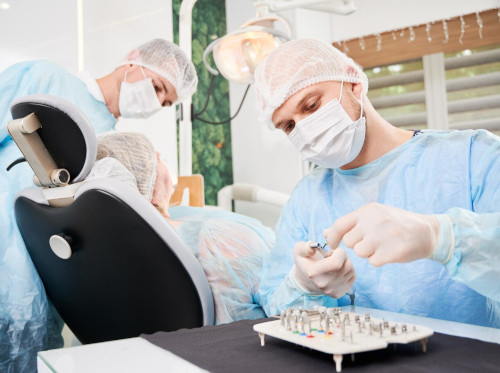
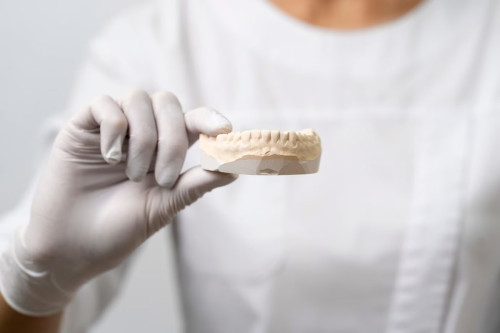
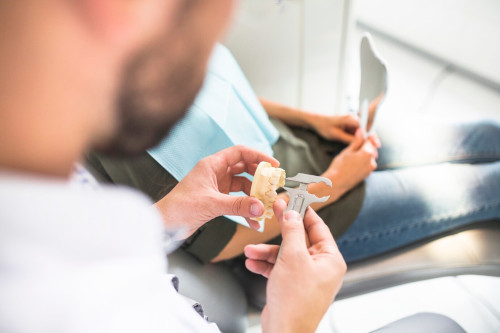

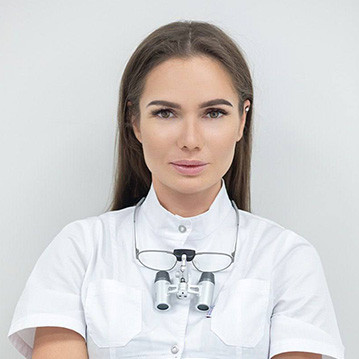
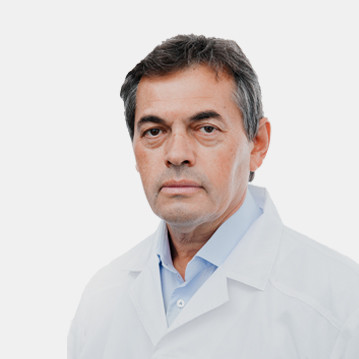
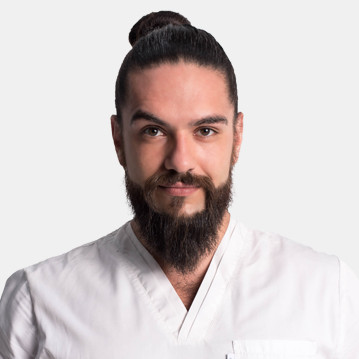
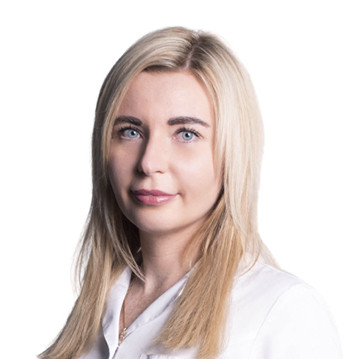
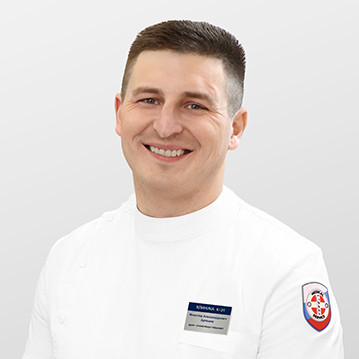

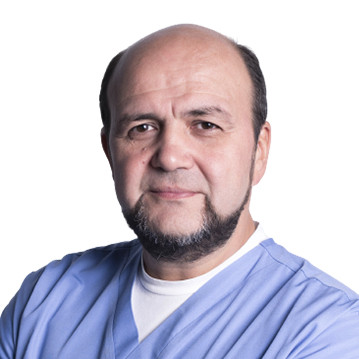

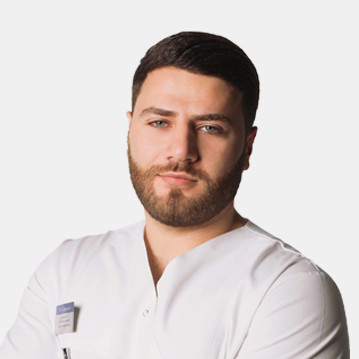

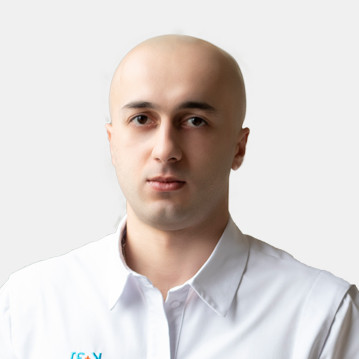
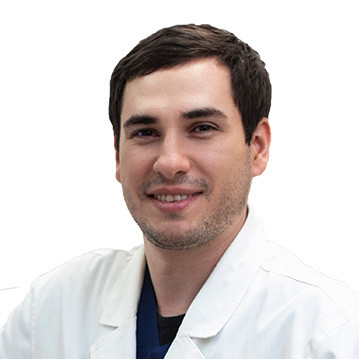

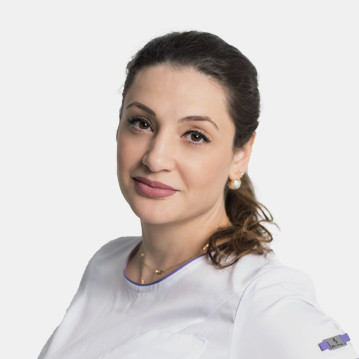
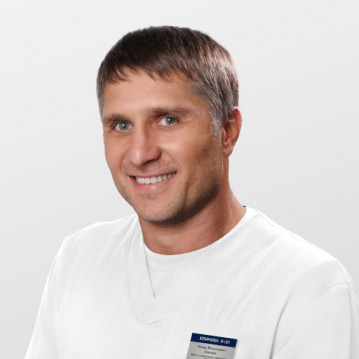
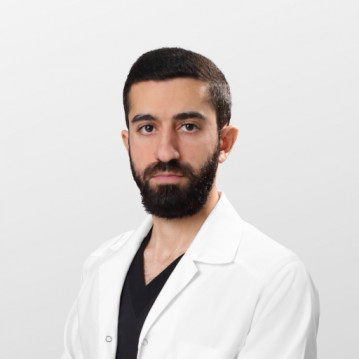
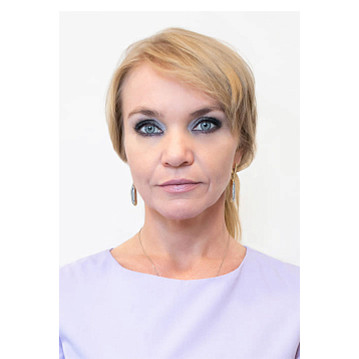

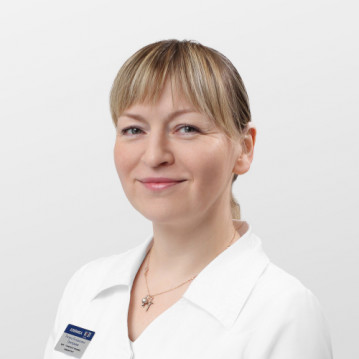
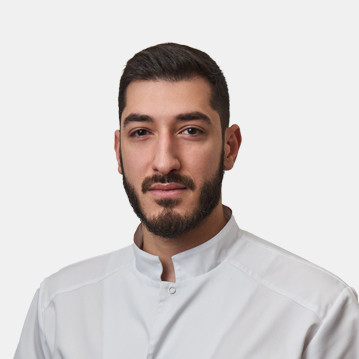
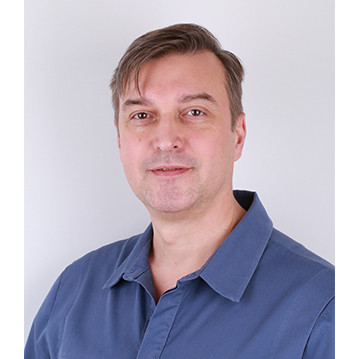

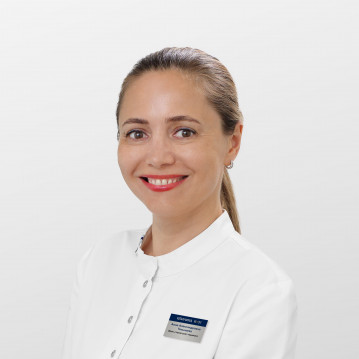
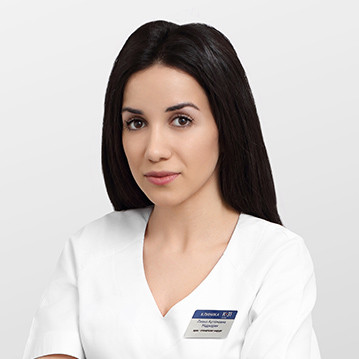
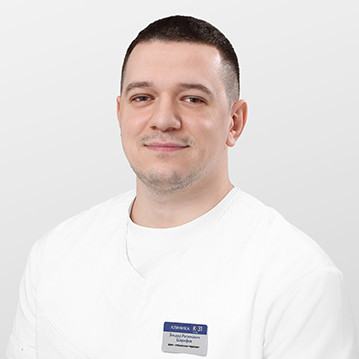
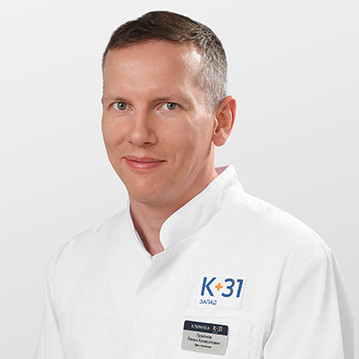


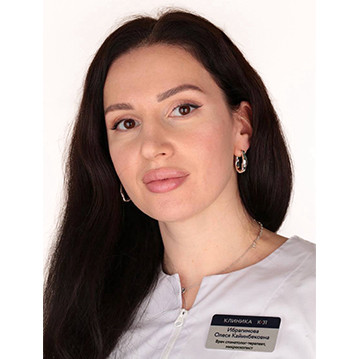
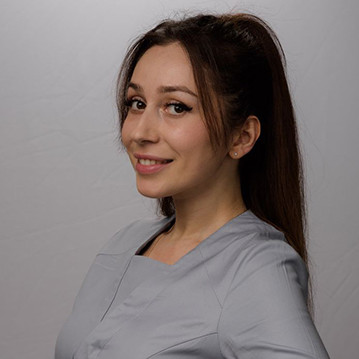


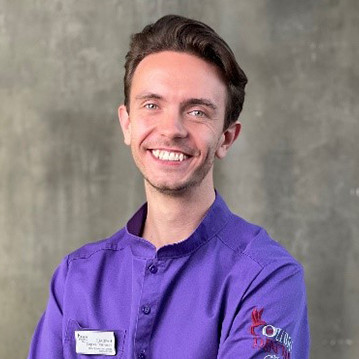
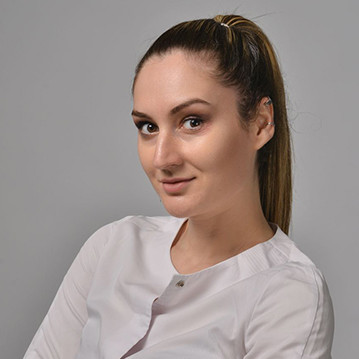

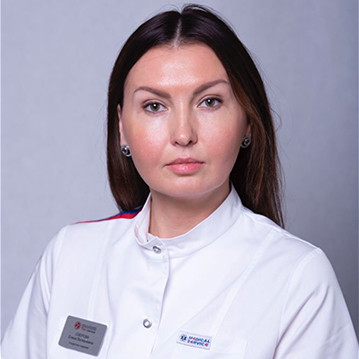









What are mini implants?
Mini dental implants are thin titanium pins that are installed in the gum. Their diameter does not exceed 2 mm.
They are used temporarily (usually the wearing period does not exceed 1 year), in order to correct the bite. Mini pins are equipped with threads - this ensures their reliable fixation in the gum tissue.